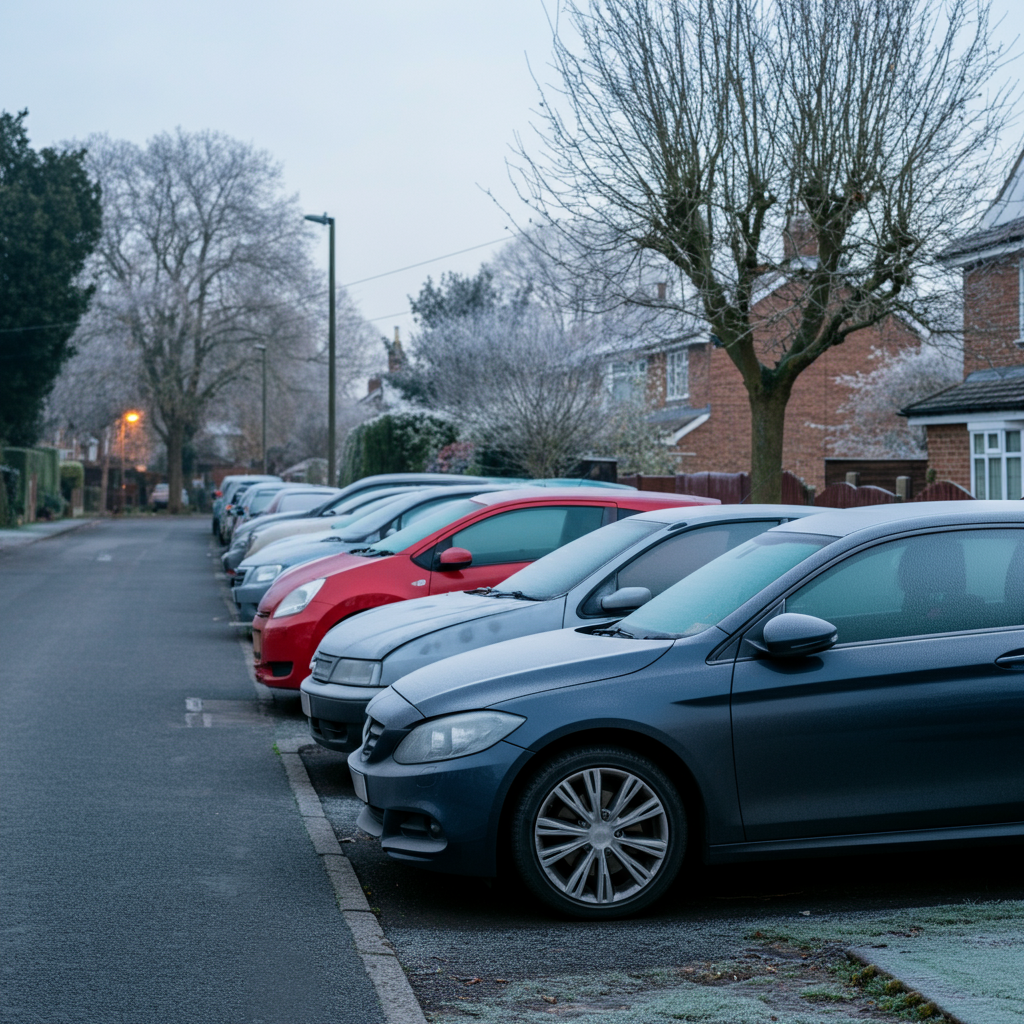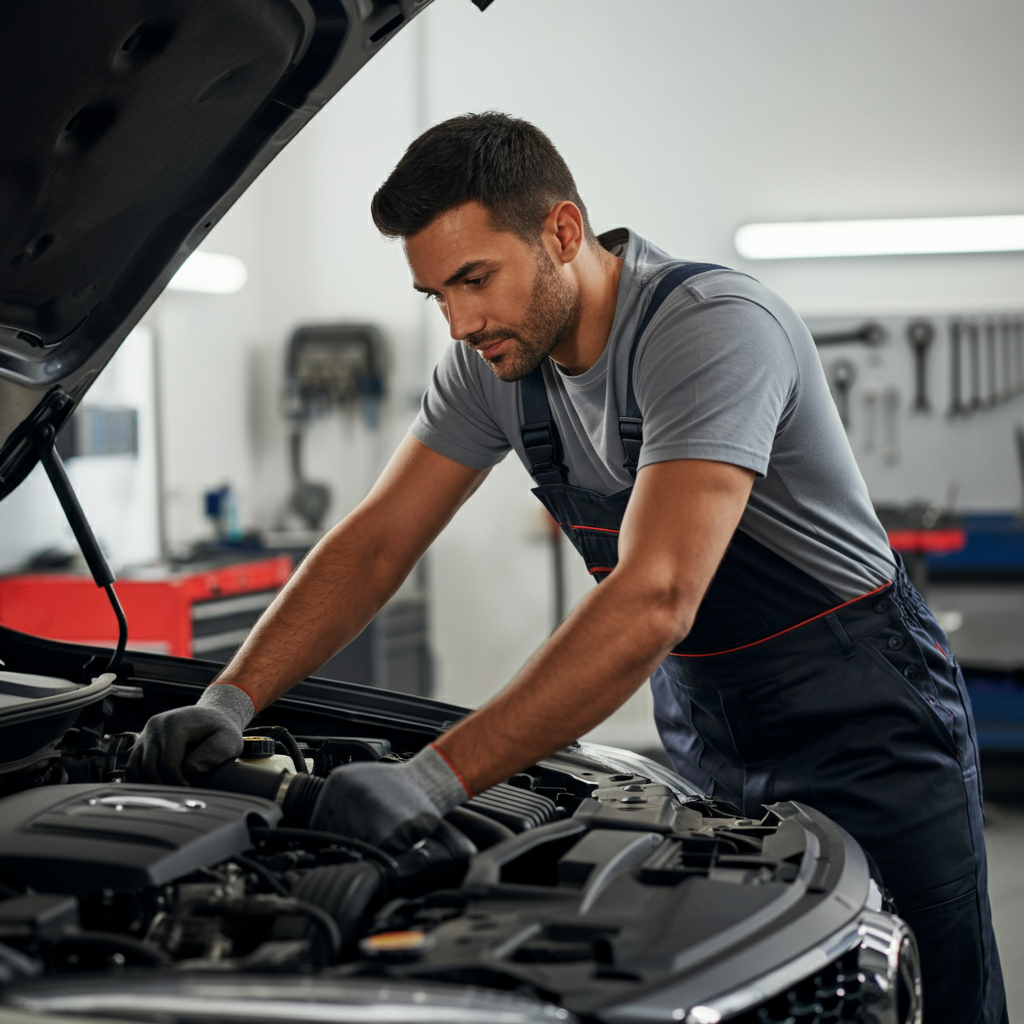Winter in Hull brings with it a unique set of challenges for drivers. The combination of cold, damp weather, icy roads, and shorter daylight hours demands more from both you and your vehicle. Preparing your car for the season is one of the most important things you can do to ensure you can handle cold starts, stay safe in harsh conditions, and avoid a breakdown on a freezing day.
This essential checklist will guide you through the key areas to inspect, helping you get your car winter-ready.
Key Car Areas to Inspect for Winter
A thorough check before the first frost hits can save you a lot of trouble later on. Here are the critical components that need your attention.
1. Your Car Battery
Cold weather is the number one killer of car batteries. The chemical reactions inside a battery slow down in the cold, reducing its power output. At the same time, a cold engine requires more power to start. This combination puts a huge strain on your battery. A battery that was fine in the summer might fail on the first frosty morning.
A simple battery test at a garage can tell you if it’s holding a proper charge. If it’s old or weak, replacing it before it fails is a wise move.
Tyres: Your Grip on Icy Roads
Your tyres are your only connection to the road, and in winter, that connection is more critical than ever.
- Tread Depth: The legal minimum is 1.6mm, but for winter driving, experts recommend at least 3mm of tread. Deeper grooves are much more effective at clearing water and slush, reducing the risk of aquaplaning.
- Tyre Pressure: Cold air causes tyre pressure to drop (roughly 1 PSI for every 10°C drop in temperature). Check your pressures monthly and inflate them to the manufacturer’s recommended level to ensure optimal grip and handling.
- Winter or All-Season Tyres: For the best possible performance in cold, wet, and icy conditions, consider switching to winter tyres. They are made from a softer rubber compound that stays flexible below 7°C, providing significantly better grip than summer tyres. All-season tyres offer a good compromise if you prefer not to switch sets.
3. Brakes
Wet and icy roads mean longer stopping distances. Your brakes need to be in perfect working order. A pre-winter brake check should inspect the pads, discs, and brake fluid to ensure they are ready for the demanding conditions. Any unusual noises or a spongy-feeling pedal should be investigated immediately.
4. Antifreeze / Coolant
Antifreeze, mixed with water to make coolant, does more than just stop your engine from overheating; it also prevents the water in your engine’s cooling system from freezing and causing catastrophic damage. You should check that the coolant level is between the ‘min’ and ‘max’ marks. More importantly, the concentration of antifreeze needs to be correct. A garage can test this for you and top it up or flush the system if needed.
5. Lights and Wiper Blades
With shorter days and often poor visibility from rain, sleet, and fog, your lights and wipers are vital safety equipment.
- Lights: Check that all your lights are working correctly – headlights, brake lights, indicators, and fog lights. Clean the lenses to ensure they are as bright as possible.
- Wiper Blades: Wiper blades degrade over time, becoming brittle and less effective. If they are smearing or juddering, replace them. A clean screen is essential for safe driving.
- Screenwash: Top up your washer fluid with a proper winter screenwash that has a low freezing point. Using just water will result in a frozen washer system when you need it most.
6. Heating and Demisting System
A functioning heater and demister aren’t just for comfort; they are crucial for visibility. Ensure your car’s heating system works effectively to clear condensation and ice from the inside of your windscreen. If it’s taking too long to demist, you might have an issue with the ventilation system or a blocked cabin filter.
What to Pack in a Winter Emergency Kit
Even with a well-prepared car, it’s smart to be ready for the unexpected. Keeping a winter emergency kit in your boot can be a lifesaver. Consider packing:
- An ice scraper and de-icer
- A torch and spare batteries
- A warm blanket and extra clothing (hat, gloves, scarf)
- A phone charger or power bank
- A shovel
- Snacks and a flask of hot drink
- A high-visibility jacket
- Sturdy footwear
Winter Preparation Services at Hull City Tyres
Getting your car ready for winter doesn’t have to be a chore. At Hull City Tyres, we offer a comprehensive winter preparation service to give you complete peace of mind. Our experienced technicians can perform all the essential checks for you, from testing your battery and antifreeze to inspecting your tyres and brakes.
We can provide honest advice on whether winter tyres are right for you and offer a wide selection to suit any vehicle and budget. If any parts need replacing, from wiper blades to brake pads, we use high-quality components to ensure your car is reliable and safe throughout the winter months.
When Should You Get Your Car Serviced for Winter?
The best time to get your car’s winter service done is in the autumn, before the bad weather truly sets in. Aim for October or November. This gives you plenty of time to address any issues that are found without being caught out by an unexpected cold snap.
Don’t wait for the first frost to find out your car isn’t ready. A little preparation goes a long way in ensuring your journeys through Hull this winter are safe and stress-free.



